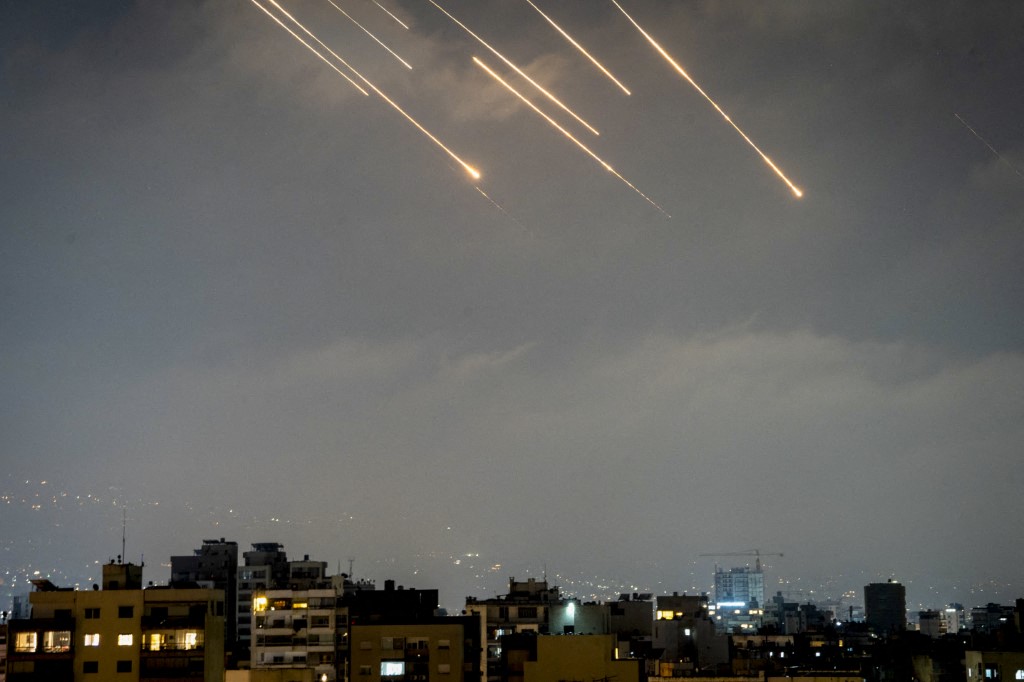As tensions exploded into open war between Israel and Iran, anxiety in Lebanon surged to unprecedented levels, although the fighting has not directly reached Lebanese soil. Still, the collective memory of the Lebanese people, marked by relentless crises — from economic collapse and the COVID-19 pandemic, to the ripple effects of the Russia-Ukraine war and repeated Israeli strikes — has left them deeply sensitive to any regional escalation. The result: widespread panic and a rush to secure necessities.
A Wave of Panic Buying
Following the Israeli strikes on Iran and the forceful Iranian retaliation, people flooded into supermarkets and shops across Lebanon on Friday evening. Shelves of canned goods, cooking oil, and rice were quickly emptied as citizens scrambled to stock up. It was a spontaneous reaction, rooted in the fear of shortages or soaring prices — a fear shaped by previous experiences with fuel stations running dry and shortages of baby formula and medications.
Rima Salim, a mother of two, summed up the sentiment: “I won’t go through the trauma of empty shelves again. Better to act before it’s too late.” She wasn’t alone. Many rushed to stockpile food, medicine, and children’s supplies, despite reassurances from authorities that supplies remained stable.
Flights Suspended Amid Regional Alert
The disruption extended beyond grocery stores to the skies. Middle East Airlines (MEA) announced a temporary suspension of flights before partially resuming operations on Saturday afternoon, June 14, with a revised schedule affecting dozens of arrivals and departures at Beirut’s airport. Meanwhile, Emirates Airlines suspended all flights to and from Lebanon, fueling fears of external supply chain disruptions.
Though some airlines have resumed activity, flights to Iraq remain suspended due to the closure of its airspace, further complicating regional transportation and logistics.
Fears Over Disrupted Imports
What most Lebanese now fear is not missiles, but the impact of war on maritime trade, particularly since Lebanon is still heavily reliant on imports, especially wheat and other raw materials vital to the food industry. Rami Nassour, standing in a long queue outside a bakery, voiced the growing anxiety: “Bread is essential. If wheat imports stop, our meals are at risk.”
Lebanon imports more than 700,000 tons of wheat annually. Any disruption in supply chains could quickly lead to shortages and panic.
Mounting Economic Concerns
The economic repercussions of war are already starting to show. Oil prices have jumped by 12%, sparking alarm in industrial and commercial sectors over rising energy costs and higher insurance premiums on imported goods. “Any increase in oil prices hits us directly,” said Sarah Hammadeh, an employee at a private company. “It’s making us think seriously about stocking up before prices get worse.”
Medicine: No Immediate Crisis, But Concern Remains
Despite scenes of anxious crowds in some pharmacies, Joe Salloum, head of the Lebanese Pharmacists’ Union, reassured the public that the country’s medicine stocks are currently stable. He added that both imports and local production remain ongoing, with an emergency plan in place in coordination with the Ministry of Health in case the situation deteriorates. So far, there’s been no critical shortage of any major pharmaceutical products, but concerns over surprise developments have prompted many to quietly stock up on essential medications.
A Nation on Edge
Lebanese citizens are not only reacting to the sound of missiles in the region — they’re still reeling from crises that never truly ended. Repeated trauma has embedded fear deep into daily life: from groceries to medicine, from the airport to the port.
Although Lebanon is not a battleground — at least not yet — its fragile economy and vulnerable food security make it one of the most exposed nations in the region. As the confrontation between Tel Aviv and Tehran escalates without a clear end in sight, vigilance has become a way of life. And in this climate of uncertainty, fear remains not only justified but inevitable.
Please post your comments on:
[email protected]
 Politics
Politics













